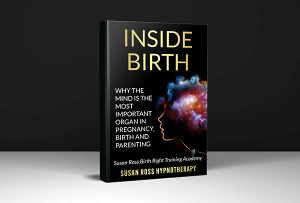BIRTH DOULA TRAINING
Enrol now to receive 12 months FREE mentoring and a copy of both my books ‘Birth Right’ and ‘Doulas – why every pregnant woman deserves one’. This is the only doulas book in Australia.
By Susan Ross
Enrol now to receive 12 months FREE mentoring and a copy of both my books ‘Birth Right’ and ‘Doulas – why every pregnant woman deserves one’. This is the only doulas book in Australia.
By Susan Ross

When a woman has grown up with the understanding that pregnancy is challenging, birthing is long and painful, and mothering is really, really hard, then that becomes her belief system. These ideas are set in concrete in her mind, both conscious and unconscious. No amount of reading ‘different’ stories and ideas is going to change this mindset. No amount of watching ‘different’ images on film is going to change this mindset. No amount of ‘convincing’ from well-meaning friends is going to change this mindset.
A woman’s belief system is first developed when she was in utero. What was your mother thinking, feeling, talking about when she was pregnant with you. What were her fears? Many of our mother’s certainly did not have the opportunity to explore or acknowledge their fears. Those ‘issues’ were just never discussed. So many women were born with a defined imprint, in their mind, about pregnancy and birthing.
Add to this the current media view of birthing, with much focus on the negative, the sensationalised TV/movie depictions of birthing, the medicalised view of birthing from obstetricians – they are doctors so this is the only view they can have! and the current very high rates of medical interventions, it is not surprising that women feel they face a huge battle to have a ‘normal’ birth.
Also referred to as: prenatal classes, antenatal classes, preparation for parenthood classes, calming, relaxing birthing classes and a host of others. This is truly very confusing for most women who have no prior knowledge of how to shop around for classes, or any other services for pregnancy. Most classes teach about how a baby fits through a pelvis – anatomy and physiology, how the hospital system works, some rules and regulations which expects women to comply with, drug pain relief, and medical interventions. Once again, these classes can reinforce a fixed imprint in the Unconscious Mind about birthing, and often women leave feeling even more fearful.
Our Inside Birth® classes teach deep hypnosis for birthing, allowing women to have total control over their state of mind, empowering them to be in charge of how they birth their baby. These classes DO NOT teach a woman how to give birth (every woman knows that!) they teach about birth and what goes on INSIDE the mind, body, baby, and how to set a positive mindset.
What thoughts you focus on will manifest into your belief system. The key is to first recognise your negative thoughts, concerns, anxieties and fears about birthing. As previously stated, they are very easy to have! I highly recommend attending an Inside Birth® class with one of our Educators, but there are many women who benefit from some extra support during pregnancy.
https://birthright.com.au/antenatal-classes/find-an-inside-birth-educator/
As a Hypnotherapist, NLP Coach/Practitioner, Time Line Therapist®, I see many women for birth debriefing and unfortunately, there are way too many traumatic birth stories that need healing! This could be avoided by having some extra one on one support during pregnancy. You will find the hypnotherapy sessions gives your unconscious mind the power to change negative thoughts, while you are very, very, relaxed. Your unborn baby will love his Mum being in this state and you will develop an even deeper connection.
The doorway to the mind/body/baby connection is the Unconscious Mind. Not only does information from the Mind affect the body, but there is substantial scientific evidence that your mental processes, states and behaviours affect all the cells in your body. In addition to healing, the Unconscious Mind opens new doors to learning and changing a belief.
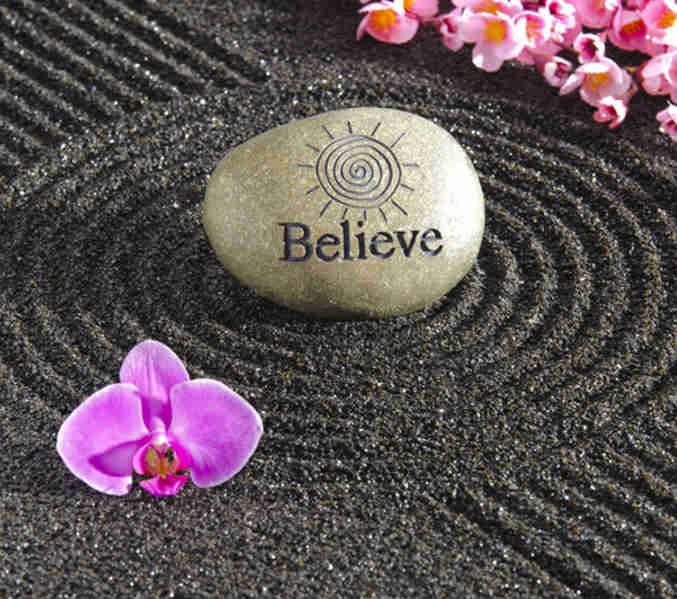
When you are in trance (hypnosis) we can tap into real power to create changes, healing what needs to be healed and making new neurological connections.
You don’t have to live with fears about birthing. Make an appointment today and your unborn baby will love the positive impact this will have on his world and you will unlock the fears and have the key to enjoying a wonderful birth.
By Susan Ross
Using Inside Birth® puts women in a very powerful place – their rightful place – IN CHARGE OF THEIR PREGNANCY, BABY AND THEIR BIRTH.

What is Inside Birth® – a prenatal program for all pregnant couples teaching: how to parent from conception, teaching beautiful, easy to learn, deep hypnosis skills for pregnancy, labour and birth.
Why is Inside Birth® unique? – a program designed specifically to allow a woman to understand how her unconscious mind influences how she will give birth AND how to easily change deep rooted fears surrounding birth and to remove any blockages which may prevent her from enjoying pregnancy and birth.
Inside Birth® is quality education. You will not be preached at, but empowered to!
I invite all pregnant women to start their Inside Birth® classes as early in pregnancy as possible. We offer, and encourage, a dip/in-dip/out package. This is important because women should have access to this education throughout their pregnancy NOT just one-off set of classes around 30wks. pregnancy (which is generally offered). That is way too late to be receiving the most important education of your life!
Where has Inside Birth® come from? This is an important question and one that should be asked by all pregnant women – who is your educator?
I am Susan Ross and have been in the pregnancy, birthing business for about 40 years. I have a background in nursing, midwifery, child & family therapy counselling, family planning. I trained as a Childbirth Educator in 1983 and have taught many, many different prenatal programs and none ever felt like they were completely providing well for women.
I want women to understand about their unconscious mind and how it is the most important organ in birthing – honestly!
Here at Birth Right Training Academy, I have been empowering women for many years, showing them how to navigate ‘the system’, encouraging them to see the benefits in hiring one of our doulas, but most importantly providing Inside Birth® education. I am a Hypnotherapist, NLP Practitioner/Coach, and Time Line® Therapist and published author of 2 books and our Watercolours CD, which you will receive free at your first class.
Inside Birth® are techniques not just for labour and birthing, but skills for life and ones that you can teach your baby, in utero and beyond.
It is important how a baby enters the world so if you want to give your baby the best start in life – begin with Inside Birth® – as early in pregnancy as possible. Learn how to have fun with your unborn baby and connect mind, body and spirit. Check out our IB Educators here:
https://birthright.com.au/antenatal-classes/find-an-inside-birth-educator/
By Susan Ross
are standard policy in most hospitals and are done either by a midwife or obstetrician.
For baby to be born, the cervix must change from closed to fully open (approx.. 10cms dilated). Vaginal examinations provide information on dilation, thinning of cervix and the position of baby’s head in the pelvis. Doctors and midwives are taught that this is a ‘normal’ part of ‘assessing a woman’s progress in labour’. It is unfortunate that this MEDICAL INTERVENTION is seen as mandatory and the ensuing decisions made, based on the results, which mostly have a negative impact on the birthing woman and her baby.
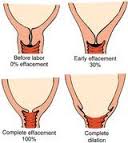
Doctors and midwives are taught that vaginal examinations aim to reassure the woman (and staff) that the woman is labouring normally, and provide early warning if this is not the case!
There have been a number of studies showing that vaginal examinations in labour do not accurately assess ‘progress’ in labour, including a 2013 Cochrane review:
“We identified no convincing evidence to support, or reject, the use of routine vaginal examinations in labour, yet this is common practice throughout the world. It is surprising that there is such a widespread use of this intervention without good evidence of effectiveness.”
The emotional cost for women should never be underestimated, especially those who have a past history of sexual abuse and domestic violence.
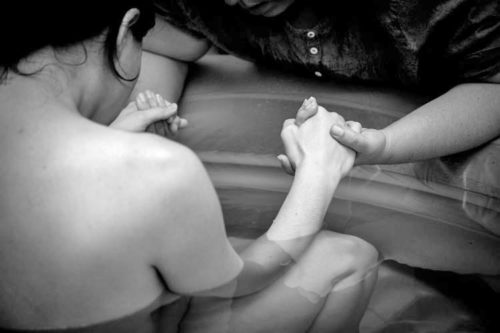
2. You have a choice and should always give INFORMED CONSENT! ALWAYS!
3. Ask the midwife/doctor – what is the reason for a VE and how will this impact my labour?
4. There are many times that women request a VE in labour, even though their intentions were NOT to have any. This can be for a number of reasons: tiredness, feeling overwhelmed, sensing impatience from staff, curiosity, thinking about drug pain relief etc. An experienced doula has the skills to manoeuvre this situation, as she knows and respects the woman’s intentions.
5. Go sit on the toilet! A great place to be private in labour (or hide!) and just BE – you and baby. Nobody can get ‘at you’ on the toilet. The bath can also be a great place as it has a physical protective wall/barrier around you and baby.
6. It is always the woman’s choice. A woman can say NO (thanks) and change her mind later.
All of the above are rare events.
The benefits of having a doula is to keep you focused on your innate womanly power and to trust and believe in your birthing body and baby. She will make sure your confidence does not wane throughout labour, birthing and decision making on behalf of your baby.
The most important organ involved in birthing is a woman’s MIND and her BELIEF system. A doula will keep that belief strong and at the forefront of every decision.
You can find out more about our training and Inside Birth prenatal classes here:
By Susan Ross
Below is a link discussing how Kids Vitamin Gummies are unhealthy and exploitative.

I agree! BUT the issue is even more concerning.
What is being taught to children is you NEED to ‘take something’ to get better and improve.
This is a dangerous message.
Is this healthy? Is this what the new ‘normal’ looks like? I hope not.
There are many ambitions and desires we all have for our children – our next generation. We want a good education, we want them to be happy, to have friends, to be kind to other children, to learn about respecting different points of view and much more AND all of this WILL be achieved if they have a healthy mind, body and spirit.
We must ask the question then, does having a happy healthy mind, body and spirit come via a pill, potion, gummie? Is it too big a stretch to link growing up with ‘normal’ reaching for a pill (natural or not?) whenever there is the slightest hiccup – to becoming a teenager/adult and taking ‘other’ substances (illegal or not) – because isn’t that O.K.? that is the very belief system they have grown up believing.
The ‘natural’ health industry is booming. It is a multi-million dollar business. The sales pitch is definitely impressive with some serious marketing strategies in place.
It is, however, very interesting to observe that many people believe there is a difference between taking a ‘natural’ product, vitamin or whatever, than taking panadol or some other hard core substances. But the message is clear, very clear, especially to children. If you are not feeling great (physically or mentally) then help is at hand via a bottle – of ‘something’.
It does not matter, really, whether it is Vitamin C, Endone, Panadol or hard core drugs. The message is the same – feeling low, feeling unwell, must take ‘something’.

Teaching children to have resilience and belief in their abilities is the key to a happy, healthy future generation.
Their bodies are NOT FLAWED and they do not need ‘natural’ pills, but instead show them how amazing their body is and how powerful their MIND is.
Imagine what would happen to the natural health industry if everyone STOPPED believing the sales pitch!!
https://theconversation.cmail19.com/t/r-l-yuhhjug-jjlyzthiy-q/
By Susan Ross

As a nation we are generally way too accepting of the ‘spiel’ (often referred to as the ‘sales pitch), just because it comes from someone in authority, that is, a doctor or midwife
We are not really a very questioning society – especially when it comes to health. Many assume that a doctor, radiologist, chiropractor, acupuncturist, midwife, nurse all know more about your body’s health, than you do!
They are, supposedly, the experts, but should we blindly accept health advice, without question?
ABSOLUTELY NOT!
Especially when it comes to pregnancy care because you are NOT SICK, and you DO NOT NEED FIXING!
DO YOURSELF AND YOUR BABY A FAVOUR AND MAKE SURE YOU GET THE RIGHT CARE AND QUESTION, QUESTION, QUESTION
It is essential to shop around for the right caregiver for you, the right place to birth, the right prenatal education and the right doula. That sounds like a lot of shopping around but think about it – you are young, fit, healthy and this is YOUR baby, and this is the beginning of parenting – sourcing the right options for you and your baby. This is what you will be doing, on behalf of your baby/child, probably forever but at least for the next 20 years. It starts from conception.
An important note: DO NOT fall for the sales pitch (that is exactly what it is if you are interviewing an obstetrician). They want your business! So if you open the conversation with “I want to have a natural birth” they will sell you that! If you open with ‘I’m terrified and my sister/mother all had caesareans’ then they will run with that!
You are in charge, so take charge and ask these questions if you are interviewing an obstetrician (and you need to meet with at least 2)
“the long term effects of repeated ultrasound exposure on a foetus are not fully known. It is therefore best to only have as many scans as your doctor feels necessary for medical reasons. The ultrasound probe emits high frequency sound waves that bounce off your baby to produce an image.
While there is no proof that ultrasounds are harmful to the baby, it heats the baby’s tissues slightly and can also cause small bubbles in tissue.” (Cochrane research)
If you are attending a midwifery model of care it is also important to ask most of the above questions, in particular how many midwives in the ‘team’ and what guarantee will your elected primary midwife be at the birth?
Doulas are wonderful, amazing women who should always be on the same page as the birthing woman, supporting that woman in what she wants – NOT what the doula thinks should happen!
For Dads a doula is essential support. Having a doula simply allows a Dad to relax and enjoy becoming a Dad, whatever that looks like for him on the day.
If you would like more information about how to shop around then you will find it in both my books here:
By Susan Ross
Women are conceiving, growing and birthing babies with increasing stress in their lives. We only need to go back 1 or 2 generations to discover how relatively stress free life was for those women who were becoming mothers
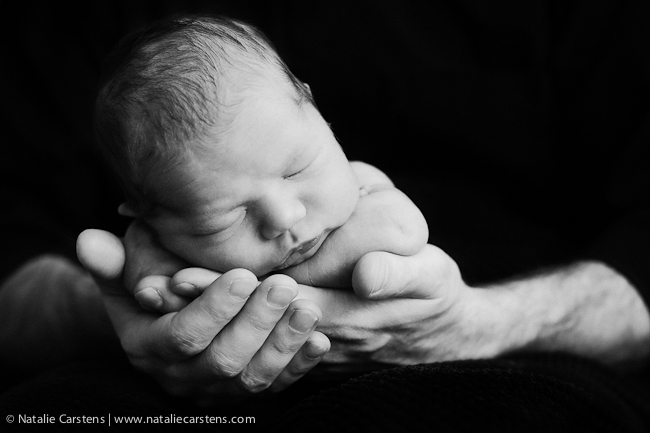
Financial stress is huge. Most couples, especially those who live in our major cities, need to both work – full time. There are all those massive mortgages, rents and lifestyle choices.
I spoke recently to a woman in her eighties. She was a mother and grandmother. She just did not understand why her son and daughter-in-law spent so much money on going to restaurants – “why do you need to go out to have someone else cook when you could cook cheaply at home”! Her son was under a lot of financial pressure and this was a constant source of argument between them.
It’s tricky, isn’t it? Because life is just different NOW. There is no right or wrong but socialising is very different NOW to what it was even 10 or 20 years ago.
Yes, that starts ticking away for women, at least, and this comes with more pressure and stress to have a baby at a certain time in one’s life.
This is another huge pressure that is definitely in the forefront of the mind, especially for couples who are trying to conceive. What can I eat, what should I eat, what am I ‘allowed’ to eat? Healthy eating is very much ‘in your face’ for everyone, and if you follow the ‘experts’ recommendations, then it is indeed incredibly confusing – so many diets! Must not forget to go to the gym, run a marathon or two, book into yoga or pilates and get an exercise bike! Yes, the list goes on and on and on….
And all this busyness can cause so much stress. Human beings are affected by their environment as soon as they have an environment, and that means as soon as they are implanted in the womb. Stress that affected one generation will be played out in the next generation.
We must LEARN how to slow down, especially when pregnant, which is not just beneficial for Mum but IS A CRUCIAL IMPRINT FOR YOUR UNBORN BABY.
If the baby, in the womb, experiences (imprint) how to be in the present moment, how to be STILL, how to have QUIETNESS in daily life, then that baby will reference this in the future. He must learn this from his Mum during his life in the womb.
A baby is wanting connection on the inside and the outside, but if he learns how to be quiet and still, and the beauty that brings, slowing down and taking time to just ‘be’ then Mum and baby will together resonate and harmonise. Baby needs to be in rhythm with his calm mother. This will transfer to the birth experience. A mother and baby who are connected, have formed a strong bond, who have spent 9 months talking to each other, learning, knowing and enjoying quiet time together, this is indeed a valuable life skill to imprint.
Imagine having a calm baby, who is happy and content, growing up being able to reference these skills, no matter what life throws at him.
There are many ways to achieve this slowing down and if you want to know more about how this impacts you and baby then book into one of our Inside Birth® prenatal classes. It’s all about the MIND and you will learn skills for connecting with your baby and appreciating the importance of how you can lay down the blueprint for your baby.
https://birthright.com.au/antenatal-classes/find-an-inside-birth-educator/
By Susan Ross
Conceiving, growing and birthing a baby is the major life event and transition to motherhood.
Becoming a mother does not begin when the baby is born, or when they learn to talk or walk, it begins from conception. It can be a turbulent or smooth journey. First, let’s look at the turbulent event.
1. How you were born! Yes, this is the big one.
2. Listening to endless horror birth stories from family and friends
3. Feeling fearful and not understanding where that comes from
4. Watching the really awful birth shows on TV
5. Reading about traumatic birth stories in pregnancy and birthing magazines
6. Being aware of your partners story and his fears
7. Work colleagues who tell you daily, with great enthusiasm, that you just don’t know what you are in for!
8. Seeing movies that portray birth in a negative way
9. Hearing endless comments from female journalists about the unbearable pain of birth
10. Never, ever hearing a positive birth story
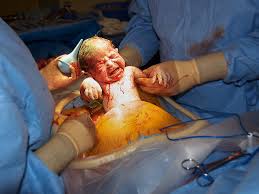
1. Fear increases more fear
2. If the caregiver (midwife or doctor) also has a negative attitude to birth, then this reinforces your fears
3. Attending pre-natal classes that reinforce fears
4. Baby picks up on Mum’s fears and anxieties, in utero
5. You become a part of the syndrome – fear=tension=pain – so labour and birth require medical intervention and pain relief
6. Never feeling safe or supported
7. You then become part of the inevitable cascade of medical intervention, leading to a traumatic birth event for you and baby
8. Because baby is traumatised, breastfeeding, bonding and attachment are difficult and slow to establish
9. Increased likelihood of post-natal depression
1. How you were born! Yes, this is the big one.
2. Only hearing beautiful birthing stories from family and friends
3. Feeling excited, joyful and elated and knowing where this has come from
4. Baby picks up on Mum’s happiness, joy, and relaxation
5. Watching and hearing only wonderful birth stories
6. Feeling connected to your partner who is equally excited
7. Understanding that this is a normal life event and what you, as a woman, are designed to do.
8. Attending pre-natal classes that share amazing birth stories and teaches you ABOUT birthing, NOT give you instructions HOW to give birth
9. These positive stories and education is empowering

1. Choosing the right caregiver for you and who will support you in what you want
2. Choosing the right pre-natal education – one that will empower
3. Choosing the right doula for you and your partner
4. Connecting with your baby and interacting in many different ways, from conception for the next 40wks.
5. Talking with your baby in utero and discussing your plans for a wonderful transition for him, from inside to outside
6. Telling baby how much you are looking forward to meeting on the outside
7. Enjoying your labour and birthing, connected in mind, body and spirit to your unborn baby and working together, relaxed and happy
8. Feeling safe and supported
9. Breastfeeding, bonding and attachment happen smoothly and easily
You do not have to live with a traumatic birth event. This memory (imprint) will stay with you forever and can affect many aspects of your life, especially the relationship you have with your baby and your feelings about mothering.
Birth debriefing using hypnosis is safe and very effective in healing the imprint from a traumatic birth experience for Mum, Dad and baby.
Mum and baby can heal. This is an opportunity to perhaps break a family cycle or ‘way’ of birthing that has been passed down from generation to generation.
Hypnotherapy will eliminate any fears and anxieties creating a positive outlook for future pregnancies.
By Susan Ross
Training to become a birth doula has got to be the most rewarding career move you can make. There are many definitions of what a doula is, from the original Greek meaning ‘servant’ to provider of physical support in labour, to advocacy and many more.

Becoming a doula is so much more than providing information and physical support during labour and birthing.
It has NOT got anything to do with the relationship a woman has with her midwife or doctor caregiver that she has chosen to care for and look out for her and her baby – medically. This is their priority and responsibility.
It is the learning how to listen, how to sit back and ‘feel’ intuitively what this woman is hearing, seeing and feeling, and developing the skill to understand her emotionally. It is often being a mind-reader and connecting the dots of information and responses that you, the doula, are receiving.
It is learning about the hospital system and the homebirth system, the policies and procedures that govern the people who work in the system.
It is learning about how obstetricians think, how midwives think, how anaesthetists think and how you, the doula, can negotiate, on behalf of the woman, in a very respectful way, to ensure the woman has the respect for her birth wishes she deserves.
A lot of groundwork is done during meetings you will have with your pregnant client. You will develop knowledge about the role of various ‘other’ professionals who specialise in providing services for pregnant women, e.g. massage, acupuncture, chiropractic, yoga, hypnotherapy, counselling, as well as prenatal classes.
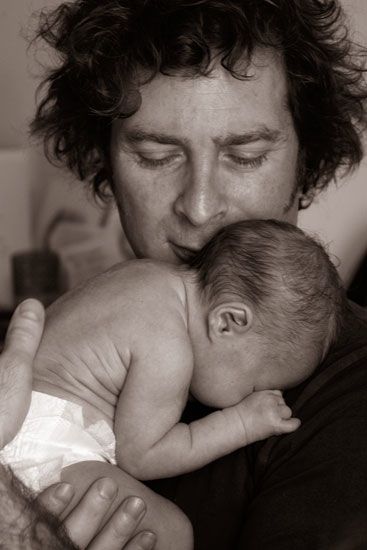
It is very normal for a Dad to be uncomfortable, even intimidated by the idea of having a doula at their birth. Many Dad’s feel they can be in control and have the capabilities of using their negotiating skills and managing the birth. Some think a doula may ‘take over’ his role during labour and birthing. Some are aware that this is very much women’s business and with a midwife and a doula at the birth – what role will he have?
You will learn the importance of including Dad and making him feel comfortable and acknowledging he has very different concerns and even fears than his partner. The very important question is to make sure a couple have the discussion about what HE wants his role to be, for there are a surprising number of men who would prefer not to be at the birth. His role should never be assumed!
Our Birth Right training is focussed on the power of listening, understanding, negotiating and most of all just knowing how to create and hold a quiet and very ‘still’ space for birthing. This is indeed a special skill to know.
The relationship you develop with the couple, is unique. You are meeting with them in their home, you do not have a set of rigid policies and procedures to follow but simply understand the system and know how to negotiate. You get to know other members of their family, or at the very least, the relationship the woman has with key people in her life and how that can impact her birthing. You will learn about where her beliefs about birthing have come from and how this is influencing her decisions. Most of all you have TIME to listen, observe, acknowledge, create, refer and educate. The couple see you as their advocate and know that you are representing her wishes, without having to impose hospital policies. You know and understand her emotionally and spiritually. Dad’s feel safe, well supported, with options for the role they want to play during labour.
There are 2 theory modules to be completed online, prior to attendance at a face to face weekend workshop, and 2 trainee births. Our current offer includes 12 mths. Of free mentoring, when you sign up for Birth Doula Training.
Every woman deserves a doula!
By Susan Ross
Childbirth Education – if you are pregnant you may be feeling overwhelmed with information and at the same time not have the energy to process the constant stream of what you should and should not be doing.
Many women have their pregnancy confirmed by a GP who often steers them in a direction for care, based on the GP’s personal experience. They appear to be very quick in offering judgements about particular hospitals, birth centres, private obstetricians, and poor old homebirth – well it usually just gets left off the discussion. A GP recently (2016) told a Birth Right client that homebirth was illegal! FYI – IT IS NOT.
Of course you must choose a caregiver and a place to birth and there are blood tests ‘offered’ and ultrasounds ‘offered’ but the most important choice is about getting some quality education because every pregnant woman and her partner needs education about what is happening INSIDE – her body, her mind, her baby’s body and most importantly her baby’s mind.

Often when women are booking into a hospital they are TOLD to go and book in for antenatal classes. Also referred to as prenatal, childbirth preparation, parenting, having a baby, hypnobirth, Lamaze, active birth, yoga childbirth, and the list goes on and on and on…… no wonder women are confused. These classes inevitably do not start until around 28-30wks pregnancy.
One of the most important decisions you make is choosing the RIGHT childbirth education classes for you and your partner.
I have taught both public hospital and private hospital classes as well as ‘other’ independent classes and there is a world of difference.
Hospital classes offer a rigid week by week plan based on hospital policy, and/or private obstetrician ‘policy’. The main focus is pain management and a whole world of negativity.
Independent classes can be offered by childbirth educators trained in specific ‘methods’ of birthing, like waterbirth or being active throughout labour (active birth), or a focus on yoga positions (yoga childbirth classes).
The general idea is that there are many tools to be used during labour and birthing. Women and their partner/doula should know and practice these methods. There are different birthing positions to remember, massage techniques, correct use of fit balls, bean bags, essential oils, yoga, walking – the list is endless.
These classes DO NOT empower birthing women.
THEY REINFORCE TO THE WOMAN THAT SHE CANNOT DO IT ON HER OWN SHE NEEDS ALL OF THE ABOVE TOOLS AND MUCH MORE.
Many will argue this and say women need to know all of the ‘tools’ to use.
WHY? When the most important tool for growing a beautiful baby, labouring and birthing is THE MIND. Women will use all the other ‘stuff’ quite intuitively, and do not need to be taught this. It is, in fact, disempowering to women.
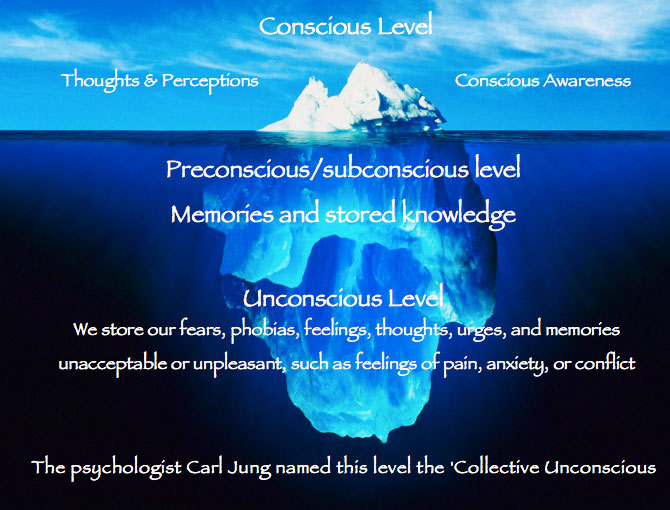
Understanding the power of the mind during pregnancy when seeds are sown, the power of the mind during labour and birthing, is essential knowledge for all pregnant parents.
Knowing how you were birthed is an important first step to developing a deep knowledge about how this impacts your own pregnancy, baby, labour and birthing.
Inside Birth® prenatal classes will delve inside your mind, the baby’s developing mind, and those people you may choose to support you throughout. I encourage you to book immediately your pregnancy is confirmed so you can begin this education as early as possible and continue throughout your pregnancy. Inside Birth® is not a ‘one-off’ set of classes but provides ongoing education and support from day 1 of conception through to meeting baby on the outside. You will be empowered and confident. Click the link below to find an Inside Birth® near you.
By Susan Ross

New parents get so much advice about how to ‘manage’ a crying baby.
New parents are often suffering from exhaustion and feeling overwhelmed, so it’s easy to accept ‘suggestions’ about how to make their newborn sleep.
They are inundated with warnings:
‘you’re making a rod for your own back’
‘teach him discipline from day 1’
‘he must learn to self settle’
‘don’t give in to his demands’
‘you are creating bad habits by giving in’
‘put baby in his own bed and own room from day 1, so he can learn’
Think about a new little being, growing beautifully in his mother’s womb, having just the right amount of nutrition, physically developing at just the right times, eyes forming, brain developing, limbs growing etc. but the other really important factor is the development of an emotional connection between parent and baby. Talking to baby in the womb, involving him in all your daily activities, reading books and looking forward to meeting on the outside. This is all happening – for 40 weeks, in the world’s most perfect environment.
Then there is the birth. A beautiful and joyful labour and birth with mother and baby working together for that most exquisite of moments – meeting and connecting on the outside. There is much research about the importance of keeping baby as close to Mum and Dad as possible. In an ideal situation, no ‘other’ hands should touch baby at birth, no ‘other’ voices should be heard, just to allow baby a very gentle immediate transition to meet his parents, on the outside.
After all that – why do many think that it is O.K. to suddenly separate a mother and baby. IT IS NOT.
Of course not! But there is this crazy idea that after all of the above, there is an urgent need for the parents to do the manipulation and get baby into a ‘routine’, before baby takes charge and starts to manipulate his parents.
AND they stop crying when picked up – for a reason, as this is the biological norm. Babies and toddlers have a hugely underdeveloped neocortex in comparison to an adults’ brain. This frontal section of the brain is responsible for rational and analytical thought as well as the regulation of emotional responses. So a baby does not have the skill of emotional self-regulation, or self-soothing or self-settling.
A baby needs his mother and father to respond to his needs, and his only way of communicating is crying. To boost emotional self-regulation in an infant is to be responsive to him when he needs it, so that in time, when the brain connectivity matures it will hardwire the pathways necessary for a baby to truly self-sooth.
Mother and baby are a conjoined unit – inside the womb and on the outside. When baby cries, it is because they have a need and it is the parent’s job to work out what that need is and meet that need as soon as possible. They have no other way of communicating. They are not being manipulators. They settle best when closest to Mum/Dad, in your arms, cuddling, singing, talking and breastfeeding.
When a baby is put in a separate bed, in a separate room, surrounded by different sounds, smells and space, they will cry – simply because for them – they have lost their Mum, and that must be pretty scary.
For a baby to grow and develop, physically, mentally, emotionally, they MUST be as close to their primary caregiver (usually the breastfeeding mother) as possible.
Professor James J. McKenna is recognized as the world’s leading authority on mother-infant co-sleeping in relationship to breastfeeding and SIDS.
He states “There is no such thing as infant sleep, there is no such thing as breastfeeding, there is only breastsleeping
McKenna says: “The worst invention culturally for all parents was the notion of the “good baby.” Good babies don’t exist because that supports the notion that only babies who sleep through the night and can self-settle are good. We know that isn’t true”.http://onlinelibrary.wiley.com/doi/10.1111/apa.13161/abstract
Leaving a baby to cry only teaches them that the very people who are supposed to be there to love and care for them and provide comfort – don’t care anymore and they give up.
It has been scientifically proven that when a baby is left to cry for an extended period of time, their cortisol levels increase and this can have detrimental long-term effects on the child which may not be evident until later in life. https://www.google.com.au/url?(Henry & Wang 1998).
John Bowlby was a psychoanalyst who formulated an evolutionary theory of attachment that supports the concept that children come into our world biologically pre-conditioned to form attachments with others as a means for survival. At the very core, babies are born with the base need to find a secure attachment to their main caregiver that acts as their secure “base” to explore their world. Babies need to form a secure attachment to their primary caregiver before they can gradually become independent in their own identity. Secure dependence from a baby to their primary caregiver is what comes before a healthy sense of independence is formed.
How can a child form a secure base to their primary caregiver when the primary caregiver is encouraged to leave them to cry and learn to cope on their own? Simply, they can’t. This idea goes against nature and not only creates stress and harm for the mother-baby unit, it is scientifically refuted and incorrect.
Cuddle your babies and keep them close

You will be giving your baby the very best emotionally secure start in life by holding them close. Do not hesitate to comfort your baby, however you can, when he is unhappy.
You are not teaching them any bad habits, but you are reinforcing their connection and bond with you, setting them up to be well adjusted and happy adults. It is normal for babies to wake often, it is normal for babies to want to breastfeed very frequently, it is normal for babies to want to be held often.
Your child isn’t manipulating you and you’re not making any rod for your back. You’re simply being a present, and loving parent.
By Susan Ross

Current thinking in Psychology generally agrees that we all have a Conscious Mind and an Unconscious Mind. Making a change in our attitudes, beliefs and values is not easy for most people to do, because they approach the change consciously. But for a change to happen it needs a two-fold approach – to the Conscious Mind and the Unconscious Mind. Hypnosis facilitates that by making the Unconscious Mind more open to suggestion from the Hypnotherapist.
The Unconscious Mind is the part of you that runs your body. It allows you to breathe you while you sleep. It makes your heart beat. It causes your nerves to send information along the neural pathways. The Unconscious Mind is the source of the intelligence of your body and Hypnosis and Hypnotherapy allows you to tap into the power of the Unconscious Mind to change your life for the better.
This is a scientifically-based process for successfully creating change at the unconscious level.
The word hypnosis creates, in some people, fear of the unknown.
But many, who have experienced hypnotherapy, report on intriguing, indeed, even profound changes as a result of hypnosis.
Hypnosis is simply a normal, natural state of selective and focused attention. Every person has the ability to access a state of trance. Some can go deeper the first time they try it, others only very lightly. Even in these light states of trance, change is possible.
We access trance daily – when we drive, or watch television, or stare out the window. However, when done purposefully, entering in this trance consciousness can assist in stress reduction, even self-healing, and inner change of unwanted fears and phobias.
Hypnosis is the tool which, once learned allows us to enter into this focused-attention state, pulling our senses from the outer world inside. In this peculiar state of mind we seem to access resources unavailable in our day-to-day waking state. With the help of a trained hypnotherapist you can work directly with the Unconscious Mind, and develop distinctive abilities that allows you to make changes in your thoughts, feelings and patterns of behaviour.
The key is to be able to access the Unconscious Mind, to understand how the Unconscious Mind operates, and to have the Unconscious Mind automatically produce new patterns of thoughts, emotions and behaviour which are otherwise hard to control consciously.
Clients who experience a hypnotherapy session often state they were surprised by how alert and in control they were. The magic of hypnotherapy is it does not give you a ‘treatment’ or a ‘pill’ to ‘fix’ something but empowers you to simply use your own hidden powers to change your blueprint in your unconscious mind. You will leave the session feeling very relaxed and confident to make the changes you need to have a healthy, happy life.
Book a session with Susan today
By Susan Ross

For many, many years women became pregnant and focused on labour and birth and preparing material things for baby, such as the cot, pram, clothes, bootees and various other so called ‘necessary’ contraptions. Fathers looked forward to the day when their son was old enough to kick a footy around the park, and women looked forward to taking their daughter shopping for clothes and other ‘stuff’. Prior to the child being of an age where they could participate in these activities, there had not been any acknowledgement of the baby – as a person. In fact, from conception, through all of pregnancy and into early childhood, this human being was never regarded as an intelligent, cognitive and an emotionally aware being. It was believed by most in the professions associated with birthing, that baby was just growing physically and much emphasis was placed on measurements to ensure women were following the correct path to growing a physically healthy baby…..until recently…..
Have you ever asked your mother how you were conceived, how she felt physically, emotionally, psycho-socially when she was pregnant with you? Do you know the details of how you entered the world?
Now, whilst none of us probably want to hear intimate details of our own conception, it is important to know and understand the emotional circumstances surrounding that event. Were your parents trying to conceive? And if so, how long had they been ‘trying’? Were you conceived naturally and were you a ‘wanted’ baby? Were you an IVF baby? Some grow up hearing maybe one or two snippets of information, often along the lines of “I was an accident” or “I’m a change of life baby”, or “there is a 10 year gap between my older sibling and me”. My own mother told me I had increased her glove size and shoe size! (sorry Mum but it wasn’t intentional when I was in utero!) And I never understood, as a child, how that was even possible?? It’s not very often we hear “I was conceived in love”, “I was a very wanted baby”, “my parents talk about how excited they were knowing they were pregnant with me”, ‘ my mother loved being pregnant with me or enjoyed every minute of birthing’…..
And yet, this information is so important for our future . What happens in utero, all the physical, emotional, spiritual experiences of the mother, impacts the unborn baby, quite profoundly. These experiences lay down an imprint which stays with us forever.
We don’t do either birth or death very well in our society. The two most important events in our life and there is very little importance attached to either, and yet they are closely linked. How we enter the world and how we exit the world – matters!
If you are planning a pregnancy it is very important to understand about your own journey in the womb and your birth, especially if there was any trauma associated with this experience. The likelihood of a woman repeating the same experience as her mother, is indeed, very high.
If you have concerns about unwanted patterns of behaviour or anxiety, phobias, fears that seem to follow in the family, then hypnotherapy can help.
Hypnotherapy is a simple way of rewriting the unwanted imprint laid down in the womb. We all have one! If you want to make changes in your life or parent differently from what your parents did, or change the birthing imprint, then hypnotherapy can easily assist. You will be relaxed, you will be in full control, you will feel calm and most of all you will be aware of the power you have to make the changes you want – simply facilitated by a hypnotherapist. Make an appointment directly with Susan 0419606171
By Susan Ross

It is easy to fear our power of choice and we rarely forgive ourselves for ending up in situations in which we feel controlled by another person or circumstance. Something deep in our soul tells us that another person should never be in charge of the most vital power we possess.
The pregnancy journey is about inner development and learning to take charge of the power of your own choices. Nobody else, but the pregnant woman, is responsible for the quality of her and her baby’s health, happiness, thoughts and inner wellbeing. There is deep joy and satisfaction in learning to experience the power of our choices throughout life. The choices a woman makes during pregnancy, on behalf of her baby, she will live with those consequences for ever.
The loss of personal power causes great pain, which can last a lifetime, but there is nothing more exquisite than the feeling of empowerment and being in charge of your pregnancy, your labour, your birth, and most importantly, your baby.
These choices must be made with careful consideration and understanding. Confidence and self-esteem is the key to managing healthy choices. A balanced and healthy sense of who you are allows you to make choices with understanding and clarity.
The confident choices you make during pregnancy sets you up for your parenting life. Parenting decisions do not start at birth or when baby can crawl, walk, talk or can kick a footy. It starts from conception. Learning to do this from conception will make you a very self-confident and ‘aware’ parent. When baby does emerge into the outside world, he will know, sense and feel your confidence and the power of your decision making and choices. He will grow and develop into a happy, healthy, confident and aware person.
Trust and belief in your own ability to make the right choices for your pregnancy and your unborn baby, have been essentially stripped away, by misinformation sold through the media. The cycle of FEAR about birthing is almost universally ingrained in society.
If we want to make the world a better place and create emotionally happy, healthy humans we must start at conception. Parenting begins at conception and the joyous connection between Mum, Dad and baby that develops during pregnancy will set baby up for life. It is the most important role any of us ever have in life and if you want to learn how to enjoy this journey, the fun ways of connecting with your baby in utero, then you must have the power of choice and believe deeply in your innate capacity to birth in your own way. To find out more, book and Inside Birth® prenatal class.
By Susan Ross

A friend has just moved into her brand new apartment in a brand new development in the middle of Sydney. To me it seems huge, ugly (as most new developments seem to be), expensive, claustrophobic, lonely, but also without privacy (so many other apartments with the ability to peer directly into hers), but most disturbingly there are so many rules and regulations. We went for a walk around the ‘gardens’ (mostly concrete with a few token trees and water feature). It seemed not possible to admire the environment (how can you admire hundreds of apartments on top of one another) and then there was the enclosed, almost stifling and crippling energy that was all pervasive, so instead, the walk involved pointing out many apartments that were apparently ‘breaking the rules’ and were definitely going to be punished for so doing. This included the wrong curtains hung at windows (apparently the ‘rule’ states they all need to be in the one colour on the outside so the hundreds of apartments look ‘uniform’ (I am now quietly shivering, not from cold, but the thought of making humans conform to such control and rigidity), then there was a number of apartments with laundry hung on balconies (a big no-no!), next was incorrect material used to enclose the very exposed balconies, another non-conformity, and on and on and on the observations went. Now I must point out at this stage, my friend is over-the-moon happy. She apparently loves this. I bravely questioned who would police this rule breaking (seemed to me an impossible task) WRONG! There are ‘apartment police’ and these culprits will be fined. Really? And this is called LIVING??? What are we doing to the human soul?
“According to Wikipedia Nanny state is a term of British origin that conveys a view that a government or its policies are overprotective or interfering unduly with personal choice”
Australia is fast becoming “the world’s dumbest nation” because of nanny state rules and restrictions, says Canadian journalist and magazine publisher Tyler Brûlé.
“This country is on the verge of becoming the world’s dumbest nation. There will be a collapse of commonsense here if health and safety wins out on every single discussion,” he said. And whilst he is focused on urban design and lock out laws etc. there is a definite Nanny State mentality when it comes to pregnancy and birth.
Never is the NANNY STATE more evident when it comes to pregnancy and birthing, where not only ‘choice’ for the birthing woman has become an almost alarmist word but the basic rights of mother and baby overlooked. If a woman cannot assert her choice and rights when it comes to birthing, what hope is there?
If these choices are not acknowledged at the very beginning of life then it is not surprising a human can end up in a large apartment development, easily accepting and adapting to the removal of choice.
Are the 2 most common questions I hear from pregnant women. They are almost shocked that I offer them choice. This is your pregnancy, your labour, your birth and your baby. You are not sick. You do not need ‘fixing’. Pregnancy is the time to start parenting, standing up for your baby’s rights and choices and not giving in to the controlling rules that invade many an otherwise beautiful birth. We surely want our next generation to grow up knowing and believing in their right to choice, otherwise we are at risk of becoming a community without soul, easily accepting control and rigid rules.
Want to change this for women? then book into our Inside Birth Childbirth Educator training in Nov.
https://birthright.com.au/training/inside-birth-childbirth-educator-training/
By Susan Ross

Looking at the chart below it is easy to understand why baby must stay close to Mum from birth. Only Mum and Dad’s hands to touch baby when born, only Mum’s and Dad’s voice should be heard by baby, and of course, soft lighting in the birthing space.
Too often in a medical environment there are loud noises, very strange smells, rough handling with the latex gloved midwife or obstetrician at birth. How confronting this must be for a baby who has spent 40 weeks in the worlds most perfect environment, safe and with Mum constantly.
We want our babies to enter the world gently, quietly and totally supported by Mum and Dad. There should be no need for any ‘other’ intervention.
INSIDE WOMB OUTSIDE WOMB
DARK LIGHT
SOUNDS SOFT LOUD NOISES
CONSTANT WARM TEMPERATURE FLUCTUATING TEMPERATURE
CONSTANT NUTRITION HUNGER AND THIRST
CONFINED SPACE LOTS OF SPACE
IN WATER IN AIR
INABILITY TO SMELL MANY DIFFERENT SMELLS
CONSTANT CONTACT WITH MUM REDUCED CONTACT
CONSTANTLY HELD REDUCED HOLDING
NAKED AND FREE CLOTHED AND SWADDLED
SOFT, WARM AND SAFE HARD, COLD SURFACES
Know that you will have a calm, happy and settled baby the longer you keep him close. Newborns must be given time to integrate slowly into this strange new world, that is of course, so familiar to us. By keeping baby close you are giving him the message that you understand how unfamiliar this new world is, and you are always going to keep him close and safe allowing him to ease into this world gently and at his own pace. Most importantly your baby needs to feel secure and protected. As a parent this message never changes, no matter how old your children are, but if we start at the very beginning it is a guarantee that baby will grow up feeling confident, safe and respected.
By Susan Ross
I must share my awe of Inside Birth®!

I received a text message at 5.30am on Sunday morning from my birthing mother’s partner to say her waters had released and she was having some waves, but had gone back to bed. I asked him to get her to talk to me in person if she was unable to sleep. I could barely sleep myself with excitement.
I received a second call at 6.30am and could hear Jodi breathing through her waves which were only two minutes apart and lasting 30-40 seconds. I reminded her to use her Inside Birth® breathing and she said, “I’m trying Therese”. I got ready quickly and was at their home by 7.30am.
Jodi was on her knees in the bedroom leaning against the bed. She had vomited a few times. Her waves were strong and she was unable to talk during them. She said she was feeling pressure and didn’t think she could do the car trip to hospital. Of course this for me indicated we needed to go.
Her partner calmly prepared and we helped her into the backseat of the car for the 15-minute trip. I followed and watched her, positioned leaning up against the backseat on her knees, hoping we got to hospital in time! I watched as we passed two policemen with a radar on the Iron Cove bridge and one turned to watch as Jodi and Ben travelled past, beckoning to his partner.
We arrived at the Birth Centre and despite having rung earlier the Midwife was not prepared for them coming in and we all received a bit of a growling. Fortunately, there was no one else birthing at the time and the midwife was able to concentrate on Jodi.
In the room Jodi knelt on the floor leaning up against the bed as she had at home. She couldn’t find a comfortable position and said she needed pain relief as she couldn’t do this for 14 hours! It was hard not to say ‘I don’t think you’re going to be in labour that long!’
She wanted to get into the bath, but had to wait for an IV cannula to be put in. Once she was in the bath she found a position on her knees which she remained in for the duration of the birth. Between waves she rested her head in the arms of her partner who stroked and caressed her and quietly whispered encouragements to her. She was in her zone and managing beautifully. Occasionally she’d ask how much longer, and that she couldn’t keep going without pain relief. Jodi had chosen no vaginal examinations and it wasn’t long before she started to feel an urge to nudge her baby down. We encouraged her to follow her urge.
Slowly and gradually Jodi birthed her baby which the midwife passed to her under the water and between her legs. The baby, a boy they discovered, covered in vernix, was very quiet and relaxed. The cord was very short and the baby needed to be held low in the water.
We helped Jodi out of the bath and to the bed to birth the placenta, which she did naturally about half an hour later. She had a small graze and tear which didn’t require stitching. The baby was a good size, but there was no rush to weigh and measure him. Jodi had refused the ‘peapod’ assessment and the midwife wholeheartedly supported her decision.
While Ben was out phoning family and finally shifting his car, I stayed with Jodi and watched as she placed her baby close to her breast and her baby lifted his head and put himself over her nipple.
When Ben returned he asked me if they needed me for anything else and I knew it was time to leave. I hugged them and congratulated them on an amazing journey and beautiful way to bring their baby into the world.
I know the weeks I spent with this couple participating in the Inside Birth® program contributed significantly to this beautiful birth. This couple were well prepared, calm, strong and confident. A week before this I had visited Jodi at home. I took her through a fear release script and I remember thinking how different she looked to the first time I’d met her. She had a serenity and feeling of readiness, despite needing a bit of pushing to finish packing her bag and complete her birth plan. She had only finished work three days before that visit. Her birth plan was presented to the midwife on her partner’s phone!
The baby was born at 39weeks. First stage of labour was about 4 ½ hours; second stage 1 ¾ hours; third stage ½ hour. Total 6 ¾ hours!!!
I did very little, fill a bath, fill a water cup, help position, watch in awe, and I hope most of all, to have blended into the background because I didn’t need to do anything. As Susan would say, “present without being a presence!”

https://birthright.com.au/training/inside-birth-childbirth-educator-training/
By Susan Ross
When you hear the word hypnosis, what do you imagine? Maybe an ominous looking hypnotherapist waving a

pocket watch back and forth, back and forth, guiding his subject into a semi-sleep, zombie-like state, as so often portrayed in movies, comic books and television. Once hypnotized, the subject is compelled to obey, no matter what!
This popular representation bears little resemblance to actual hypnosis. Modern understanding of hypnosis contradicts this conception on several key points. Subjects in a hypnotic trance have absolute free will, and they’re not really in a semi-sleep state, but a trance like state where they are hyper-attentive.
Our understanding of hypnosis has advanced a great deal in the past century, with most of psychology agreeing we have a Conscious Mind and a Sub-Conscious Mind (or unconscious).
Making changes in our attitudes, beliefs and values is not easy for most people to do, because they approach the change consciously, but for a change to occur we need to work with both. Hypnosis facilitates that by making the sub-conscious Mind more open to suggestion from the Hypnotherapist.
Hypnosis is safe, very relaxing, and you will not do anything you do not choose to do or is outside your value system.
The Sub-conscious Mind is the part of you that runs your body. It allows you to breathe while you sleep. It makes your heart beat. It causes your nerves to send messages along the neural pathways. The Sub-conscious Mind is the source of the intelligence of your body and Hypnosis and Hypnotherapy allows you to tap into the power of the Sub-conscious Mind to create change in your life.
Hypnosis, also known as hypnotherapy, is a method of inducing a trance or a dream-like state of deep relaxation in order to remove blockages and make changes in your sub-conscious Mind. It has been practised in various forms for thousands of years by many cultures including Druid, Celtic and Egyptian. In the 19th and early 20th centuries, hypnosis (or ‘mesmerism’) was seen more as a sideshow curiosity than a valid medical treatment.
Today, hypnosis is recognised by the scientific community as an effective healing tool.
The brain has different levels of consciousness, or awareness, ranging from fully alert to drowsy to fully asleep, with variations in between. Hypnotic states occur naturally and spontaneously, like daydreaming, being absorbed in a pleasant task and losing track of time, or the dreamy state just before falling asleep. This trance like state, we all experience, daily.
Hypnosis deliberately induces this kind of relaxed state of awareness. Once the mind is in a relaxed state, any therapeutic suggestions can have great effect on attitudes, perceptions and behaviours. Hypnosis accesses the ‘unconscious mind’, which is more open to new ideas than the rational ‘conscious mind’. During hypnosis a person is said to have a heightened focus, concentrating intensely on a specific thought or memory, whilst blocking out sources of distraction.
• Hypnosis is designed to induce a relaxed and suggestible state of mind.
• Contrary to popular belief, you are always in control and can’t be hypnotised against your will.
• Hypnotherapy works well with those who want to achieve desired results and are open to suggestions.
• Hypnotherapy is safe and drug free.
• It is very relaxing and has profound results for those who want to make changes in their life.
• Phobias
• Fears and anxieties
• Weight loss
• Stopping smoking
• Pregnancy fears
• Birthing fears
• Birth debriefing
• Relationship issues
Book an appointment with Susan today:
https://birthright.com.au/services/hypnotherapy/
By Susan Ross
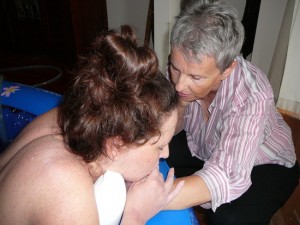
1. Your doula is NOT medically trained. AND that is a good thing because birth is not a medical event.
2. Your doula is NOT going to have the baby for you! Some women do secretly want to hand over the birthing to the doula.
3. Your doula is NOT a babysitter for other children.
4. Your doula will NOT just front up for the birth.
5. Your doula will NOT just be ‘on call’ on the off-chance she might be needed.
6. Your doula will NOT replace a partner.
7. Your doula will NOT attend a freebirth
8. Your doula will NOT leave in the middle of labour
9. Your doula will NOT argue with the midwife/doctor
10. Your doula will NOT tell you how to give birth
1. Your doula IS trained to have a unique understanding about the physical, emotional, spiritual journey of pregnancy, labour and birthing.
2. Your doula IS your ‘go to’ person for independent sources of information
3. Your doula IS your ‘constant’ rock of security and safety
4. Your doula HAS no other agenda but to support what you want for your pregnancy, labour and birthing
5. Your doula IS your advocate throughout, supporting you to stand up for your rights and, most importantly, your baby’s rights
6. Your doula IS a support for your partner – supporting him to have whatever role he chooses, on the day, allowing him to relax and enjoy becoming a DAD
7. Your doula WILL be available to you throughout your pregnancy, for face to face visits, as well as phone and email contact
8. Your doula WILL make sure you feel confident and empowered in all your choices, for you and baby
9. Your doula WILL help you to navigate ‘the system’, as she understands how ‘the system’ works, and how to get the best out of it for you and your baby.
10. Your doula WILL work respectfully with all hospital staff, ensuring a smooth and uninterrupted birthing experience.
Birth Right doulas are amazing women, of all ages and backgrounds who are passionate about nurturing pregnant and birthing women. Doulas make a positive difference at every birth. During labour, their primary role is to create an environment so that each and every woman feels safe, confident and protected, allowing her to release, let go, and focus on her and her baby and enjoy birthing and welcoming baby into the world.
Dad, Nigel, said of their Birth Right doula – “she was present without being a presence”.
https://birthright.com.au/training/birth-post-natal-doula-training/
By Susan Ross

This comes with a warning for partners of pregnant women – if you are given a list of DIY projects around the house, please note: THE JOBS MUST BE DONE!
If you notice that your pregnant partner is acting out of character and she is fastidiously cleaning out cupboards, re-painting rooms, washing – EVERYTHING, sometimes twice, ironing, changing cushions on the lounge, cleaning skirting boards (often in preparation for re-painting), re-organising kitchen cupboards, re-designing the garden or cooking madly and endlessly freezing meals, then do not be worried, but enjoy this frenetic madness because it won’t happen again, anytime soon. You will learn to love your new pristine, highly organised environment. Women have reported throwing away perfectly good sheets and towels because they felt the strong need to have ‘brand new, clean’ ones in their home.
They have also reported doing things like taking apart the knobs on kitchen cupboards, just so they could disinfect the screws attached.
Women have discussed taking on cleaning their entire house, armed with a toothbrush.
Some think that ‘nesting’ is simply a phenomenon manufactured by the media, but not so. Psychologists are now reporting evidence that pregnant women really do have a measurable urge to get organised and renovate. It is a primal instinct going back thousands of years.
There’s plenty of evidence for nesting in other mammals, including mice, rabbits, monkeys and apes. Nesting is an overwhelming biological drive that motivates pregnant females prepare a safe place for themselves and their babies in that crucial period during and shortly after birth.
Psychologists Marla Anderson and Mel Rutherford from McMaster University in Ontario, Canada, say they have found evidence that women really do change their behaviour during pregnancy. Their results were published in the journal Evolution and Human Behaviour. http://dx.doi.org/10.1016/j.evolhumbehav.2013.07.002
Anderson and Rutherford developed an online questionnaire to look for nesting behaviours, which was completed by several hundred pregnant and non-pregnant women (who didn’t know what the study was about). The researchers also followed the behaviour of 20 women throughout their pregnancies and compared the results to those for 19 non-pregnant women.
In both parts of the study, the pregnant women were significantly more likely than non-pregnant women to report behaviours that could be described as nesting. These increased throughout pregnancy and peaked during the third trimester. They included what the researchers call “space preparation behaviours” such as home renovations, energy bursts, purging and sorting household items.
They suggest that future studies could look at whether women with a strong urge to nest are more likely to choose home births, and whether allowing women more control over the birthing environment might help to reduce anxiety during childbirth.
Women also become more selective about the company they keep, preferring to just spend time with people they trust, reports the journal Evolution & Human Behaviour.
Having control over the environment is a key feature of preparing for childbirth, including decisions about where the birth will take place and who will be welcome.
Psychologist Doctor Marla Anderson, of McMaster University in Canada, said: ‘Nesting is not a frivolous activity.
‘We have found it peaks in the third trimester as the birth draws near and is an important task that probably serves the same purpose in women as it does in other animals.
‘It ties us to our ancestral past. Providing a safe environment helps to promote bonding and attachment between both the mother and infant.’
Females of the animal kingdom are all equipped with this same need. Just as you see birds making their nests, mothers to be do exactly the same.
Increased nesting is often a sign that labour is imminent. Women often report that these last minute tasks just must be completed before birthing can begin.
So listen to your body and follow your instincts.
